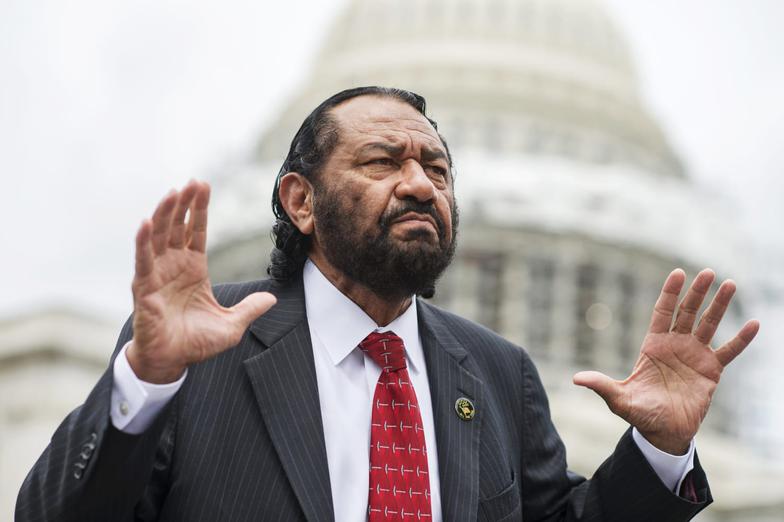CLICK ON PICTURES FOR DETAILS
DETROIT NATIVE SUN
DETROIT NATIVE SUN
Lansing, Michigan – EMS providers are pleading with Michigan legislators to compensate them for unpaid emergency services provided to state prisons, before it impacts emergency operations around the state.
EMS agencies remain on the hook for nearly $6 million in emergency services provided at Michigan Department of Corrections' prisons through its former healthcare provider Wellpath. This lack of payment has caused at least 15 providers across the state to deal with serious financial woes. Most dire is the situation in the Eastern Upper Peninsula, where delinquent payments of nearly $500,000 owed to Kinross EMS put the agency less than a month from closing its doors.
"The Legislature must prioritize the health and safety of our communities by compensating EMS agencies for the $6 million in emergency care provided on behalf of the State of Michigan," said Angela Madden, Michigan Association of Ambulance Services Executive Director. ""This is a health and safety issue, not a partisan issue and we need urgent action before EMS providers are forced to close their doors and leave communities without emergency care."
The lack of compensation continues to strain emergency response agencies, putting emergency care in jeopardy while leaving Michiganders vulnerable when they need help most. As EMS agencies are required under Michigan law to respond to all 9-1-1 requests, the State of Michigan must compensate EMS agencies for the outstanding MDOC bills. To date, action has not been taken to rectify this crisis and the nearly $6 million deficit is taking its toll on EMS agencies, impacting lifesaving operations without reimbursement.
EMS providers are pleading with state officials to include direct reimbursement for affected agencies at the first available opportunity in a state budget supplemental
"Compensating EMS for keeping our communities safe and healthy 24/7/365 must be a priority and we urge the lawmakers to step up and do the right thing," said Jeff White, chief of Richmond Lenox EMS, serving portions of Macomb and St. Clair Counties. "EMS providers are always there when people need them most and now it's time for the State of Michigan to step up before life-saving services are impacted."
Al Green censored by Congress for protesting Trump on Medicaid
By Lauren Burke
SPECIAL TO THE SUN
In one of the quickest punishments of a member of the U.S. House of Representatives in the modern era, Congressman Al Green (D-TX) was censured by a 224-198 vote today in the House. His censure featured no hearing at the House Ethics Committee and his punishment was put on the floor for a vote by the Republican controlled House less than 72 hours after the infraction in question. Of the last three censures of members of the U.S. House, two have been members of the Congressional Black Caucus under GOP control. In 2023, Rep. Jamal Bowman was censured.
On the night of March 4, as President Trump delivered a Joint Address to Congress, Rep. Green interrupted him twice. Rep. Green shouted, “You don’t have a mandate to cut Medicare, and you need to raise the cap on social security,” to President Trump. In another rare event, Rep. Green was escorted off the House floor by security shortly after yelling at the President by order of GOP House Speaker Mike Johnson. Over the last four years, members of Congress have yelled at President Biden during the State of the Union. Georgia Republican Marjorie Taylor-Greene was joined by Republican Rep. Lauren Bobert (R-CO) in 2022 in yelling at President Biden. In 2023, Rep. Greene, Rep. Bob Good (R-VA), and Rep. Lisa McClain (R-MI) yelled at Biden, interrupting his speech. In 2024, wearing a red MAGA hat, a violation of the rules of the U.S. House, Greene interrupted Biden again. She was never censured for her behavior. Rep. Green voted “present” on his censure and was joined by freshman Democrat Congressman Shomari Figures of Alabama who also voted “present”.
All other members of the Congressional Black Caucus voted against censuring Green. Republicans hold a four-seat advantage in the U.S. House after the death of Texas Democrat and former Houston Mayor Sylvester Turner yesterday. Ten Democrats voted along with Republicans to censure Rep. Green, including Rep. Jim Himes of Connecticut, who is in the leadership as the senior Democrat on the House Intelligence Committee.
“I respect them but, I would do it again,” and “it is a matter of conscience,” Rep. Green told Black Press USA’s April Ryan in an exclusive interview on March 5. After the vote, a group of Democrats sang “We Shall Overcome” in the well at the front of the House chamber. Several Republican members attempted to shout down the singing. House Speaker Mike Johnson gaveled the House out of session and into a recess. During the brief recess members moved back to their seats and out of the well of the House. Shortly after the vote to censor Rep. Green, Republican Congressman Andy Ogles of Tennessee quickly filed legislation to punish members who participated in the singing of “We Shall Overcome.”
Earlier this year, Rep. Ogles filed legislation to allow President Donald Trump to serve a third term, which is currently unconstitutional. As the debate started, the stock market dove down over one-point hours from close. The jobs report will be made public on March 7.

